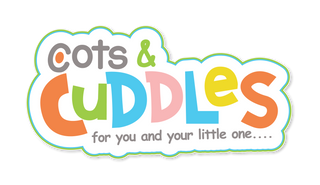Introduction: Keeping your little ones entertained at home can sometimes feel like a challenge, especially when you're trying to balance fun and educational value. But the good news is, there are plenty of activities that promote creativity, learning, and fun! In this blog, we’ll guide you through the best educational activities for kids, broken down by age group. These activities will not only keep them engaged but also boost their cognitive and physical development.
1. Why Kids Need Educational Activities
Kids’ brains are like sponges, soaking up everything around them. From toddlers to older kids, engaging them with educational activities has multiple benefits:
- Developmental Growth: Promotes cognitive, physical, and social skills.
- Skill-building: Enhances creativity, problem-solving, and motor skills.
- Bonding: Activities that involve interaction can strengthen parent-child relationships.
2. Best Educational Activities for Toddlers (1-3 Years)
At this stage, toddlers are exploring the world around them, and the activities you choose should stimulate their senses and help develop their motor skills. Here are some great activities to engage your toddler:
Sensory Play Ideas:
- Playdough: Let them squish, roll, and mold. This builds fine motor skills and sparks creativity.
- Water Play: Fill a shallow tray with water and let your toddler splash around using cups and toys.
- Texture Exploration: Provide items with different textures like soft fabrics, sand, or rubber toys.
Simple Puzzles and Shape Sorters:
Shape sorters and simple puzzles with larger pieces help toddlers improve problem-solving abilities while enhancing hand-eye coordination.
Interactive Storytime:
Choose storybooks with sound effects or textures for a multi-sensory experience. These activities improve language skills and listening abilities.
3. Top Play Ideas for Preschoolers (3-5 Years)
Preschoolers are eager to learn and understand more complex concepts. Here are some age-appropriate activities for them:

Art Projects:
- Finger Painting: Let them create masterpieces while building creativity.
- Drawing: Provide crayons or markers for drawing shapes and people.
STEM Toys:
Introduce basic STEM concepts through toys like building blocks, counting games, and simple engineering toys. This fosters an early interest in science, technology, engineering, and math.
Physical Play:
- Obstacle Courses: Set up a safe obstacle course in the backyard or living room to build gross motor skills.
- Dance Parties: Play some music and let them dance around, which helps with coordination and rhythm.
4. Engaging Play for School-Aged Kids (5-10 Years)
As kids grow older, their cognitive abilities expand. You can start offering more complex educational activities for school-aged kids that challenge their minds:
Science Experiments:
Simple experiments like baking soda volcanoes or making slime provide hands-on learning and curiosity.
Educational Board Games:
Games like Monopoly or Scrabble teach counting, spelling, and strategy while having fun.
Puzzle-Solving Challenges:
Give them jigsaw puzzles or logic games that involve critical thinking and problem-solving.
5. Bonus Tips to Keep Kids Productively Engaged
While learning is important, it’s also necessary to offer a balance of activities to help your kids stay active and calm.
Screen-Free Time:
Avoid over-reliance on screens. Encourage activities like reading, building, or crafting for offline fun. Too much screen time can have adverse effects on children’s attention spans and development.
Creative Play with Household Items:
Use everyday items like paper cups, plastic bottles, or old magazines for craft projects. This boosts creativity and resourcefulness.
Interactive Family Games:
Games like "Charades" or "Simon Says" are great for family bonding while also teaching kids cooperation, listening skills, and self-discipline.
Conclusion:
Engaging your kids at home doesn’t have to be difficult. By choosing activities that align with their developmental stage, you’ll not only keep them entertained but also help them grow and learn in the process. Whether you’re introducing sensory play to toddlers, STEM toys for preschoolers, or problem-solving games for older kids, the possibilities for fun and educational play are endless.

Tip: Explore our top picks for educational toys to enhance your child’s learning experience.


